How to Learn Songs by Ear on Guitar
How to Learn Songs by Ear on Guitar
1. Stay away from your guitar until you can hum the song along the recording
2. Find out the key of the song
There are two methods of finding the key of songs. First way is to play the following notes with the song you want to learn:
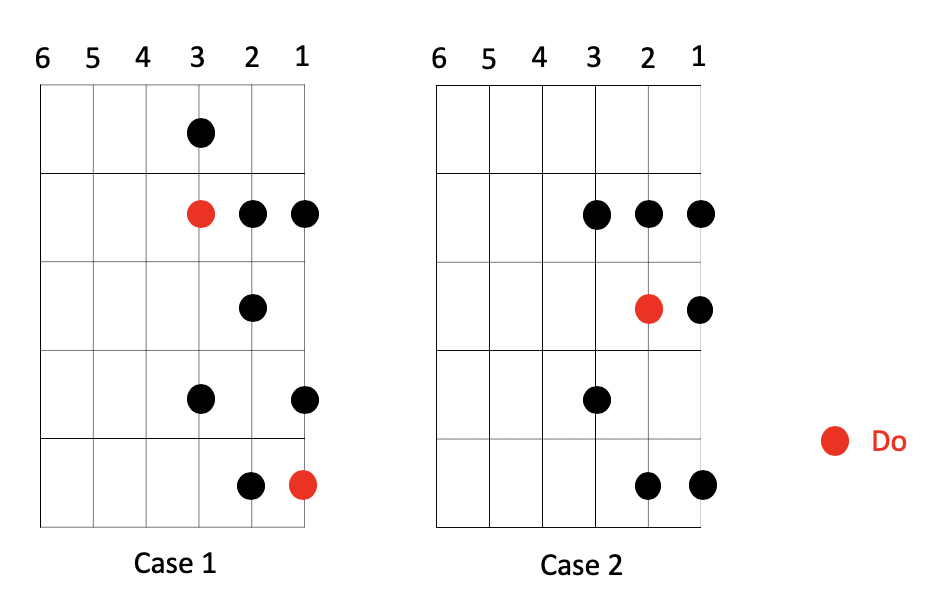
There are two patterns in the picture, and when we find the notes that fits the song, we find out the key.
The second way of finding key is to find the pentatonic scale that “works”. We can use pentatonic position #1 to quickly figure out the key:
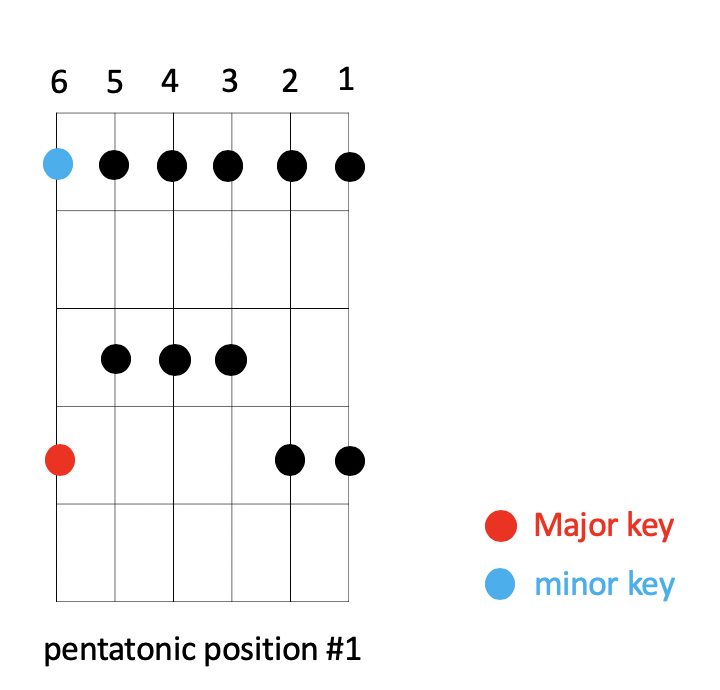
Starting from the open position, then the first fret, then the second fret… keep trying 0-12 fret(0 is the open position, which is same as the 12th fret), until we find the notes that fit perfectly over the song.
3. Figure out the chord progression of the song
Circle of Fifths
We can use the Circle of Fifths to determine the chord progression.
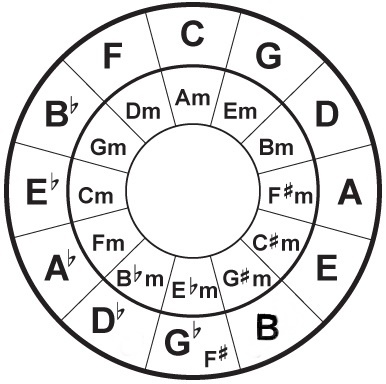
As shown in the Circle of Fifths, there are 12 keys(12 major & 12 minor). In each key, there are 6 chords, 3 of which are major chords, and the other 3 are minor chords. For example, C major is Am minor, and in C, the chords are:
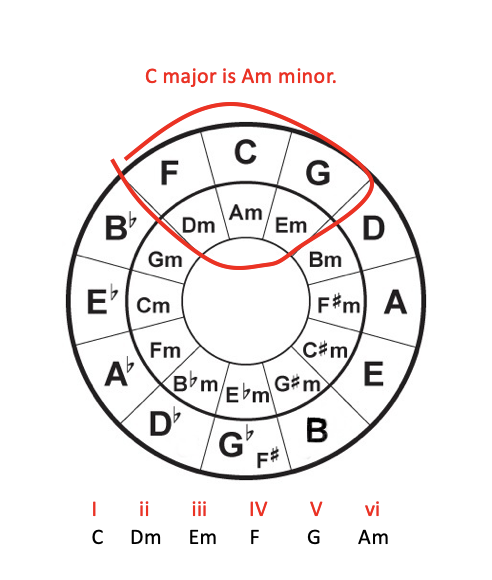
Therefore, when we find out the key of the song, we can try the 6 chords in the certain key and determine the chord progression.
Note that sometimes we can borrow chords from parallel keys. For example, for the E major key, we can borrow the chords from Em minor key. Besides, the E major key is also the C#m minor key, so we can also borrow the chords from Db major key.
CAGED System
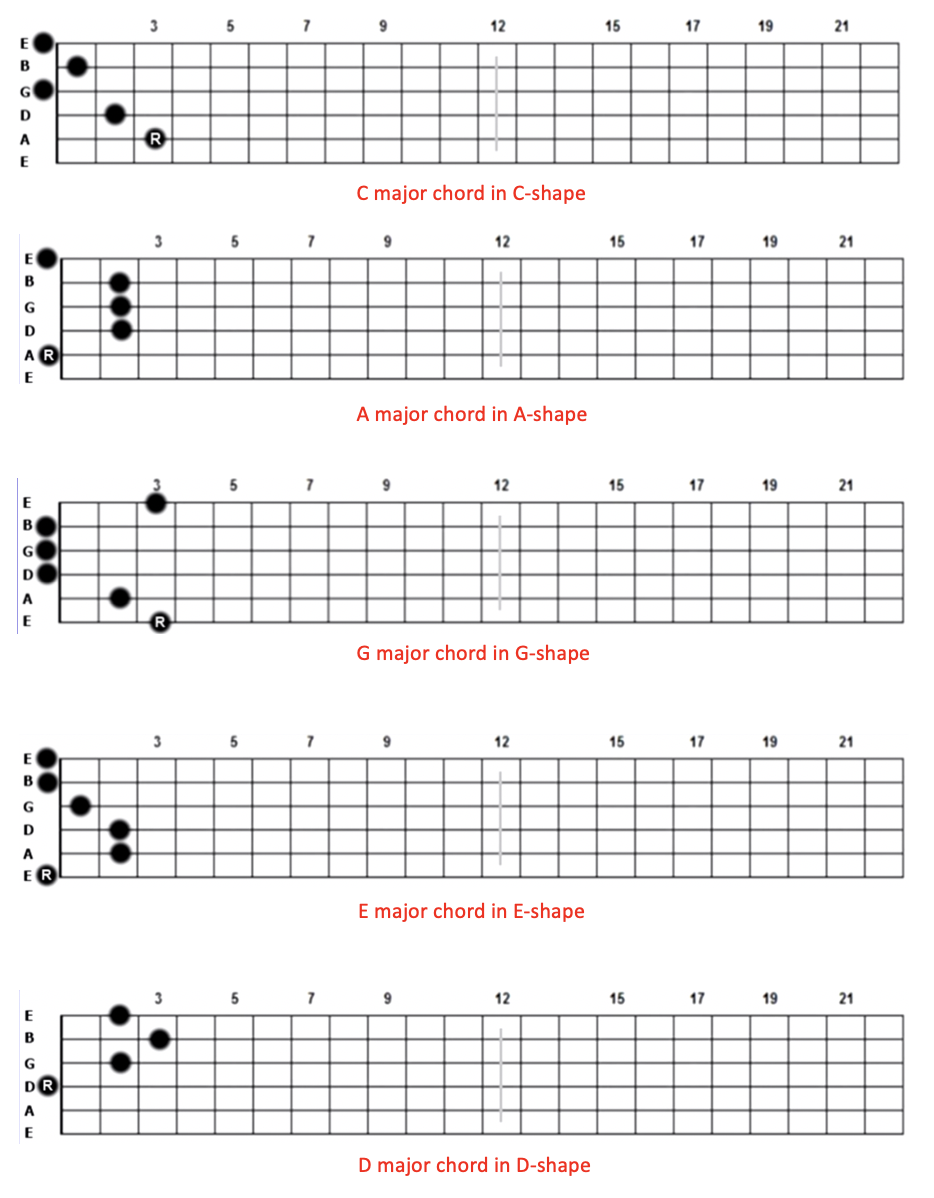
There are five movable shapes, i.e., C shape, A-shape, G-shape, E-shape and D-shape.
For each of these shapes, we should know where the root is located.
For C-shape and A-shape, the root is on the A-string.
For G-shape and E-shape, the root is on the low E-string.
For D-shape, the root is on the D-string.
Knowing the root of each shape is important. For example, if we want to play the B major chord, we can firstly find the root on the low E-string. Then we can use G-shape or E-shape to play the B major chord:
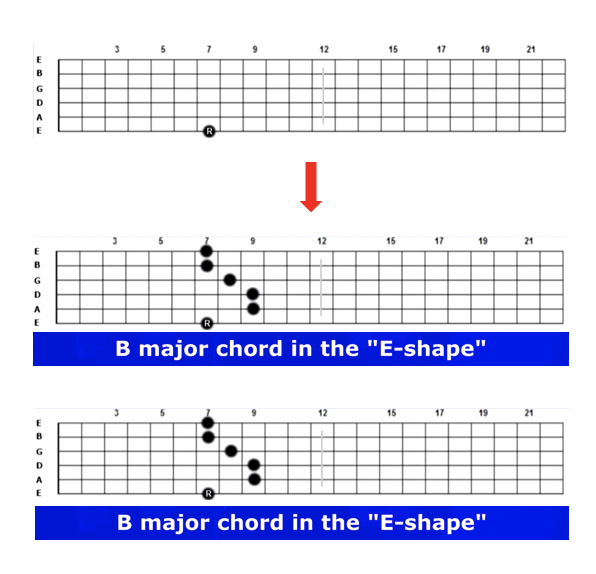
Similarly, if we want to play the E major chord, we can firstly find the root on the A-string, then we can use the C-shape and A-shape to play the E major chord:
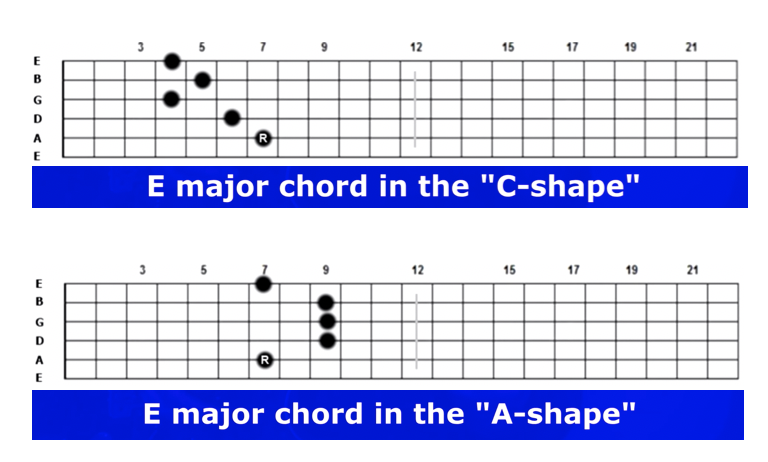
And if we want to play the A major chord, we can firstly find the root on the D-string, then we can use the D-shape to play the A major chord:

We should also understand that the shapes always “move” in the same order, i.e., C-A-G-E-D-C-A-G…
For example, we can play C major chord in five shapes:
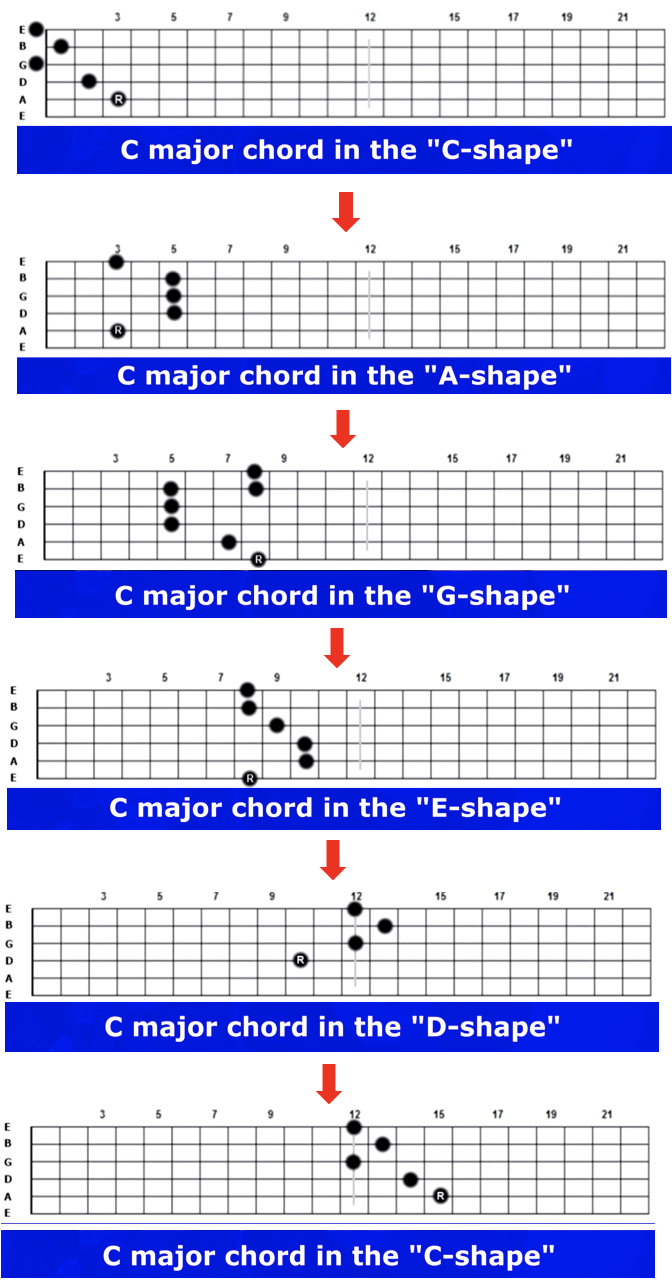
Another thing we should know is that each shape only contains 3 notes. For example, C major chords only contains C, E and G, and A major chord only contains A, C# and E:
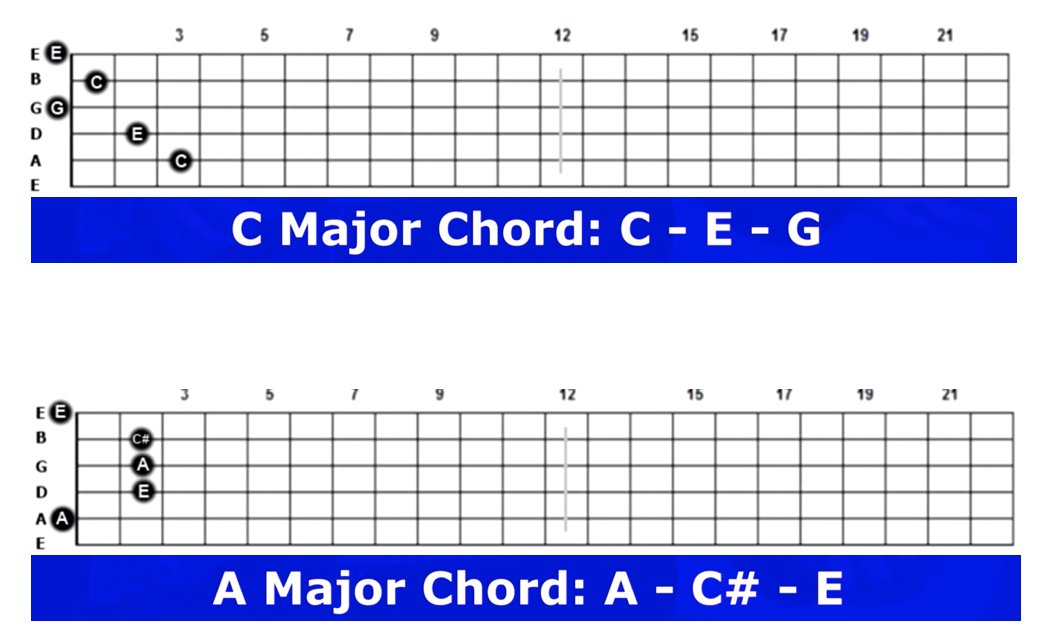
Now we begin to make the minor chords. As we know, the formula of major chord is R - 3 - 5, and the formula of minor chord is R - b3 - 5. Therefore, major chords become minor by lowering the 3rd by 1/2 step(1 fret). For example, for each shape of C major chord, we can find the corresponding minor chord(i.e., Cm):
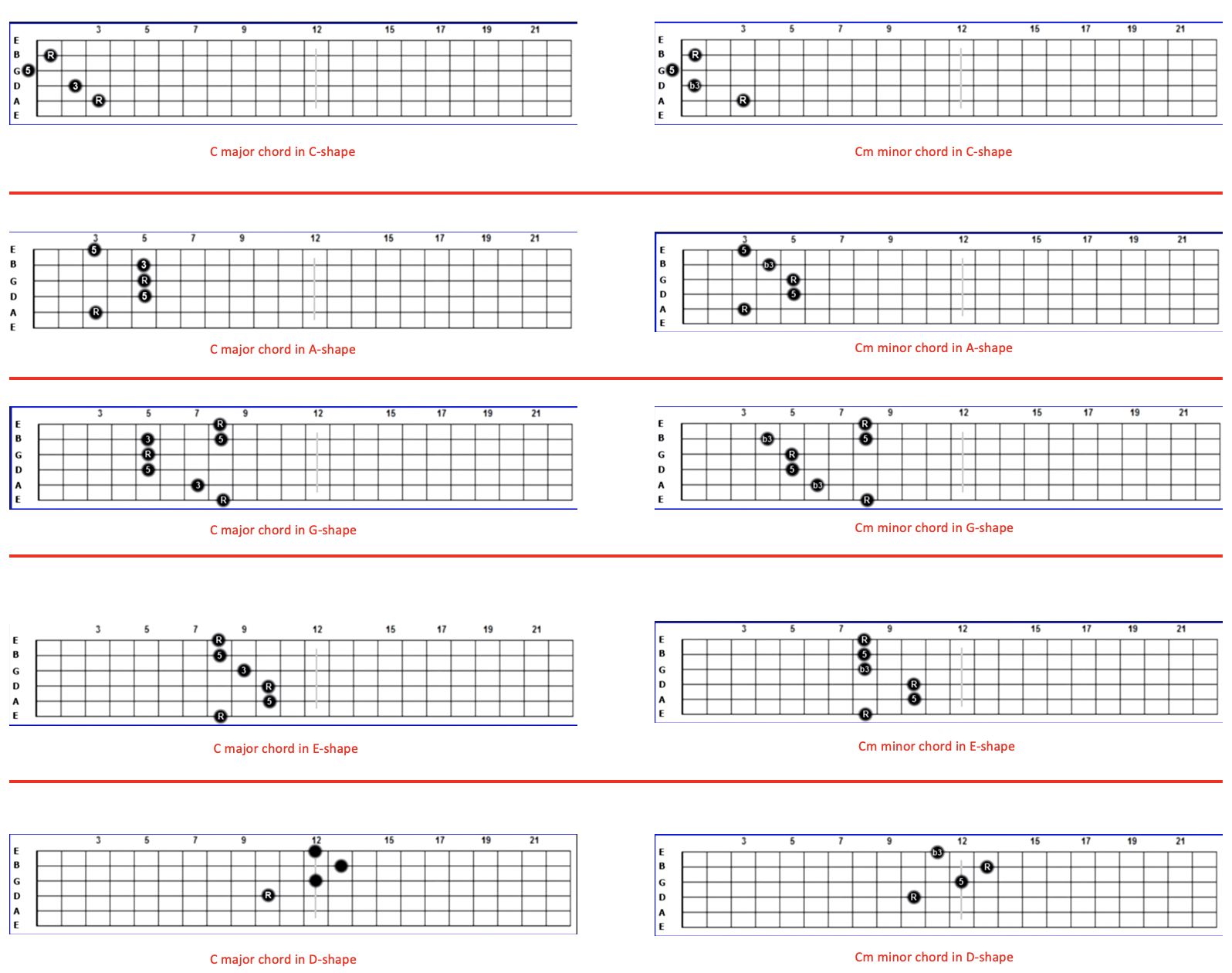
Typical Chord Progressions
There are several typical chord progressions:
pachelbel’s cannon progression:
I-V-vi-iii-IV-I-IV-V.4-chord song progression:
I-V-vi-IVorI-vi-IV-VorIV-I-V-viorV-vi-IV-Iorvi-IV-I-V. Songs that start withIorVsound happy. Songs Starts withvisound sad.4-5-3-6 progression:
IV-V-iii-viorIV-V-iii-vi-ii-V-I